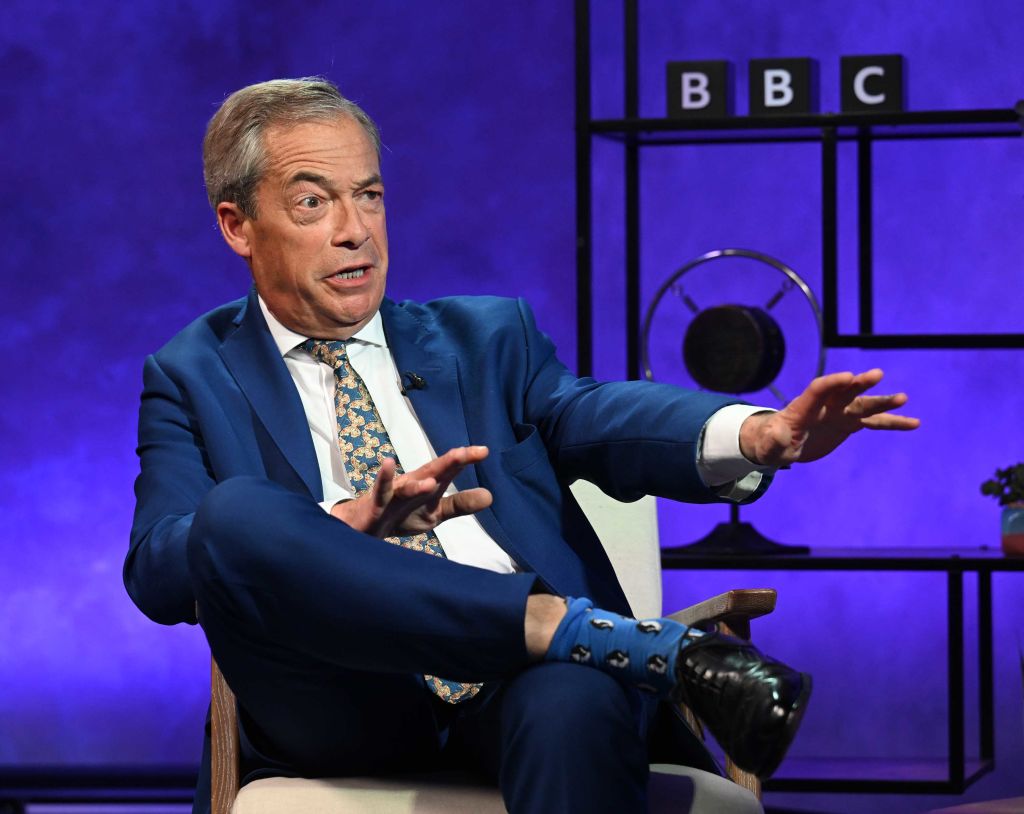Ever since Nigel Farage announced that he would stand for election as leader of Reform UK, the political class has been looking for an opportunity to thwart him. Those on the liberal-Left deplore his views on immigration and still hold a grudge over Brexit. Meanwhile, those on the Tory Right desperately need to stop voters defecting to his party.
On Friday night, they finally got their opportunity: when asked about Ukraine by the BBC’s Nick Robinson, Farage claimed that “we provoked this war.” The denunciations came thick and fast. Farage is a “Putin apologist” and “fanboy” who promotes “Kremlin talking points”. According to Home Secretary James Cleverly, he “excuses Putin’s illegal war in Ukraine”. For Labour leader Sir Keir Starmer, his comments were “disgraceful”.
But all this phoney outrage and McCarthyite name-calling is completely unwarranted. Far from being some extreme view that no reasonable person could possibly hold, Farage’s position is entirely mainstream within the scholarly debate.
It’s worth noting that he was actually quite careful with his language. “Of course it’s [Putin’s] fault,” Farage stated. “He’s used what we’ve done as an excuse.” How is this excusing the war? If Person A mildly insults Person B, and then Person B kills him, it is not excusing Person B’s behaviour to say the reason he killed Person A is that the latter insulted him. Farage was offering an explanation for the war, not a justification.
What’s more, the explanation he offered is one favoured by many respected scholars and diplomats. According to Professor John Mearsheimer, “The West, and especially America, is principally responsible for the crisis which began in February 2014.” Likewise, Professor Stephen Walt has argued that “Putin is not solely responsible for the ongoing crisis over Ukraine, and moral outrage over his actions or character is not a strategy.”
Professor Joshua Shifrinson is another scholar who believes that Western policy played a key role in Putin’s decision to invade Ukraine. Back in 2016, he wrote a prize-winning article based on detailed archival research, which showed that “the United States repeatedly offered the Soviet Union informal assurances against Nato’s future expansion into Eastern Europe.” More recently, he has claimed that “Nato enlargement is essential to understanding how we’ve ended up in this mess.”
US diplomat Jack Matlock Jr concurs. After serving as ambassador to the Soviet Union under Ronald Reagan, he testified in Congress against Nato expansion in 1997. “It may well go down in history as the most profound strategic blunder made since the end of the Cold War,” Matlock said at the time. He then reiterated these sentiments in an article published just days before Russia’s invasion.
Numerous other scholars and diplomats have expressed similar views. This doesn’t mean Farage is necessarily right. After all, there are many well-informed people who take the opposite view. The point is that his position is reasonable and intellectually defensible. It does not make him a “Putin apologist”.
If Farage’s critics want to dissuade voters from casting their ballots for Reform, they ought to focus on matters of substance. Their fulminations over his latest comments only reinforce the impression of a condescending political class that brokers no dissent.











Join the discussion
Join like minded readers that support our journalism by becoming a paid subscriber
To join the discussion in the comments, become a paid subscriber.
Join like minded readers that support our journalism, read unlimited articles and enjoy other subscriber-only benefits.
Subscribe